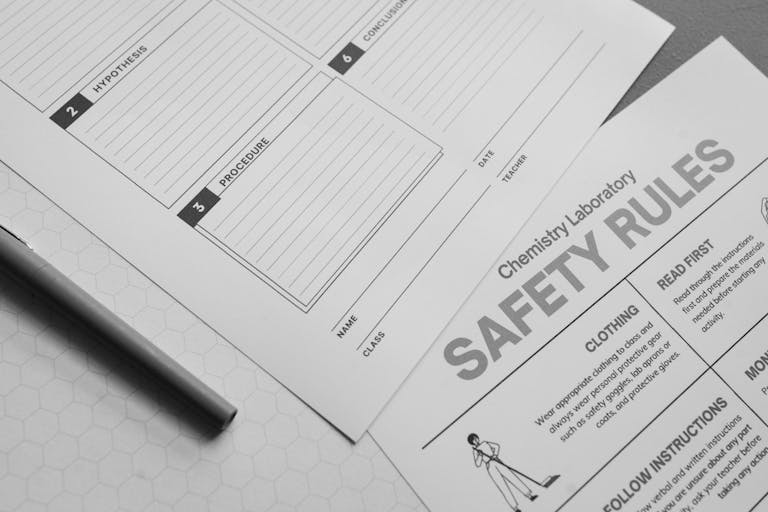Enhancing Client Self-Esteem: Evidence-Based Strategies (+3 Worksheets)
Introduction
One of the most essential elements of mental health and well-being is self-esteem. It has an impact on our sense of self, our capacities, and our interactions with the outside world. Building a client’s sense of confidence during treatment can have a major positive impact on their mental health, particularly for those who are experiencing depression, anxiety, or low self-esteem. When it comes to helping clients feel better about themselves, evidence-based techniques can be quite helpful in promoting positive change. In this article, we’ll explore practical, empirically supported methods for enhancing self-esteem in treatment, such as daily affirmations, positive self-talk, and cognitive-behavioural approaches.

Understanding Self-Esteem
Self-esteem is the measure by which people assess their own values and abilities. It is frequently influenced by relationships, experiences, and cultural norms. While high self-esteem is associated with increased well-being and life satisfaction, low self-esteem can contribute to a number of mental health issues, such as eating disorders, anxiety, and depression.
According to a study (2015), there is a significant link between mental health disorders and poor self-esteem. People who have low self-esteem are more likely to experience depression and anxiety. To improve their clients’ general mental health and well-being, therapists prioritize helping them feel better about themselves.
Evidence-Based Strategies for Enhancing Self-Esteem
1. Cognitive-Behavioural Approaches (CBT)
Cognitive-behavioural therapy (CBT) is one of the most widely used and researched methods for improving self-esteem. By helping clients identify and challenge negative thought patterns, CBT empowers them to develop healthier, more positive self-perceptions.
CBT encourages individuals to reframe their thoughts from “I am not good enough” to more balanced and realistic perspectives, such as “I have valuable qualities, even if I sometimes make mistakes.” This cognitive restructuring helps reduce self-criticism, which is a major contributor to low self-esteem.
A study published in Cognitive Therapy and Research (2017) found that CBT effectively improved self-esteem in individuals with depression, noting a significant reduction in negative self-views after several weeks of therapy.
Worksheet 1: Self-Esteem Journal
A practical tool for therapists to use is a Self-Esteem Journal. This worksheet encourages clients to document and reflect on positive aspects of themselves each day, promoting a shift toward more positive self-perception.
Download the Self-Esteem Journal Worksheet [Here]
2. Positive Affirmations and Daily Positive Self-Talk
Positive affirmations are statements that help reframe negative thoughts into empowering beliefs. Repeating affirmations can help clients gradually change their internal dialogue from self-doubt to self-confidence.
The effectiveness of positive affirmations is supported by neuroscientific research, which shows that self-affirmations activate the brain’s reward centres, fostering resilience and improving emotional regulation. A study from the Social Cognitive and Affective Neuroscience (2016) journal highlighted how affirmations reduced the impact of self-doubt on decision-making.
For example, clients might say, “I am worthy of love and respect,” or “I have the power to achieve my goals,” which helps them confront self-criticism and nurture a more positive self-image.
Worksheet 2: Affirmation Cards
In therapy, Affirmation Cards can be provided to clients. These cards offer clients daily affirmations that they can reflect on or carry with them, encouraging consistent positive self-talk and boosting self-esteem over time.
Download the Affirmation Cards Worksheet [Here]
3. Encouraging Strengths Identification
Another evidence-based strategy for enhancing self-esteem is helping clients identify and focus on their personal strengths. When clients are aware of their strengths, they are better equipped to overcome challenges and set realistic, achievable goals.
A study published by the Journal of Positive Psychology (2018) that found individuals who regularly reflected on their strengths showed higher levels of self-esteem and well-being. By recognizing their unique abilities, clients gain confidence in their capacity to succeed.
Therapists can use a Strengths Identification Worksheet to help clients pinpoint their strengths, reflect on past successes, and explore how those strengths can be applied to new challenges. This approach helps create a foundation for long-term self-esteem growth.
Download the Strengths Identification Worksheet [Here]
4. Fostering a Growth Mindset
Adopting a growth mindset—the belief that abilities and intelligence can be developed through effort—has a powerful impact on self-esteem. A growth mindset encourages clients to see challenges as opportunities for learning rather than as reflections of personal inadequacies.
Research by Dweck and colleagues has consistently shown that individuals with a growth mindset have higher self-esteem and are more resilient in the face of setbacks. By cultivating this mindset, clients are less likely to view mistakes as failures and more likely to embrace personal growth.
Therapists can introduce clients to strategies for fostering a growth mindset, such as reflecting on past experiences where they overcame difficulties and discussing how those lessons can be applied to current challenges.
5. Mindfulness-Based Techniques
Mindfulness encourages clients to focus on the present moment without judgment, which can help them cultivate greater self-compassion. Practicing mindfulness can alleviate negative self-talk and reduce the impact of harsh self-criticism.
A review of mindfulness-based interventions (2020) found that mindfulness not only improved self-esteem but also reduced symptoms of anxiety and depression. Clients who practice mindfulness learn to observe their thoughts without attaching to negative narratives, making it easier for them to build a positive self-image.
Integrating Gratitude for Self-Esteem Enhancement
Exercises that focus on gratitude are a great way to increase self-esteem. Studies reveal that people who consistently express appreciation report feeling more worthy of themselves and more satisfied with their lives. This is because gratitude shifts the focus away from perceived deficits and failures and toward positive aspects of one’s life and accomplishments.
In therapy, clients can be encouraged to keep a gratitude journal or engage in gratitude exercises that focus on self-acknowledgment. A study from the Journal of Happiness Studies (2019) found that individuals who practiced gratitude over a period of weeks reported a significant increase in self-esteem and life satisfaction.
Conclusion
Enhancing client self-esteem is a critical aspect of mental health therapy, with wide-reaching benefits for emotional well-being, resilience, and personal growth. Cognitive-behavioural techniques, positive affirmations, strengths identification, and mindfulness-based approaches all provide powerful tools to foster positive self-regard.
Therapists can integrate these strategies into their practice by using worksheets like the Self-Esteem Journal, Affirmation Cards, and Strengths Identification, which empower clients to take an active role in their self-esteem journey. By combining these evidence-based strategies, therapists can help clients build lasting self-worth and improve their overall mental health.
References
Orth, U., & Robins, R. W. (2014). The development of self-esteem. Current Directions in Psychological Science, 23(5), 381-387.
Johnson, S. L., & Wood, A. M. (2017). Positive psychology interventions for people with depression. Clinical Psychology Review, 56, 5-20.
Fredrickson, B. L. (2016). The broaden-and-build theory of positive emotions. Philosophical Transactions of the Royal Society B: Biological Sciences, 371(1684).
Dweck, C. S. (2015). Growth mindset: The new psychology of success. Random House.
Kuyken, W., Watkins, E., Holden, E., & White, K. (2020). Mindfulness-based cognitive therapy and self-esteem. Behaviour Research and Therapy, 132, 103649.
Social Cognitive and Affective Neuroscience Journal. (2016).







